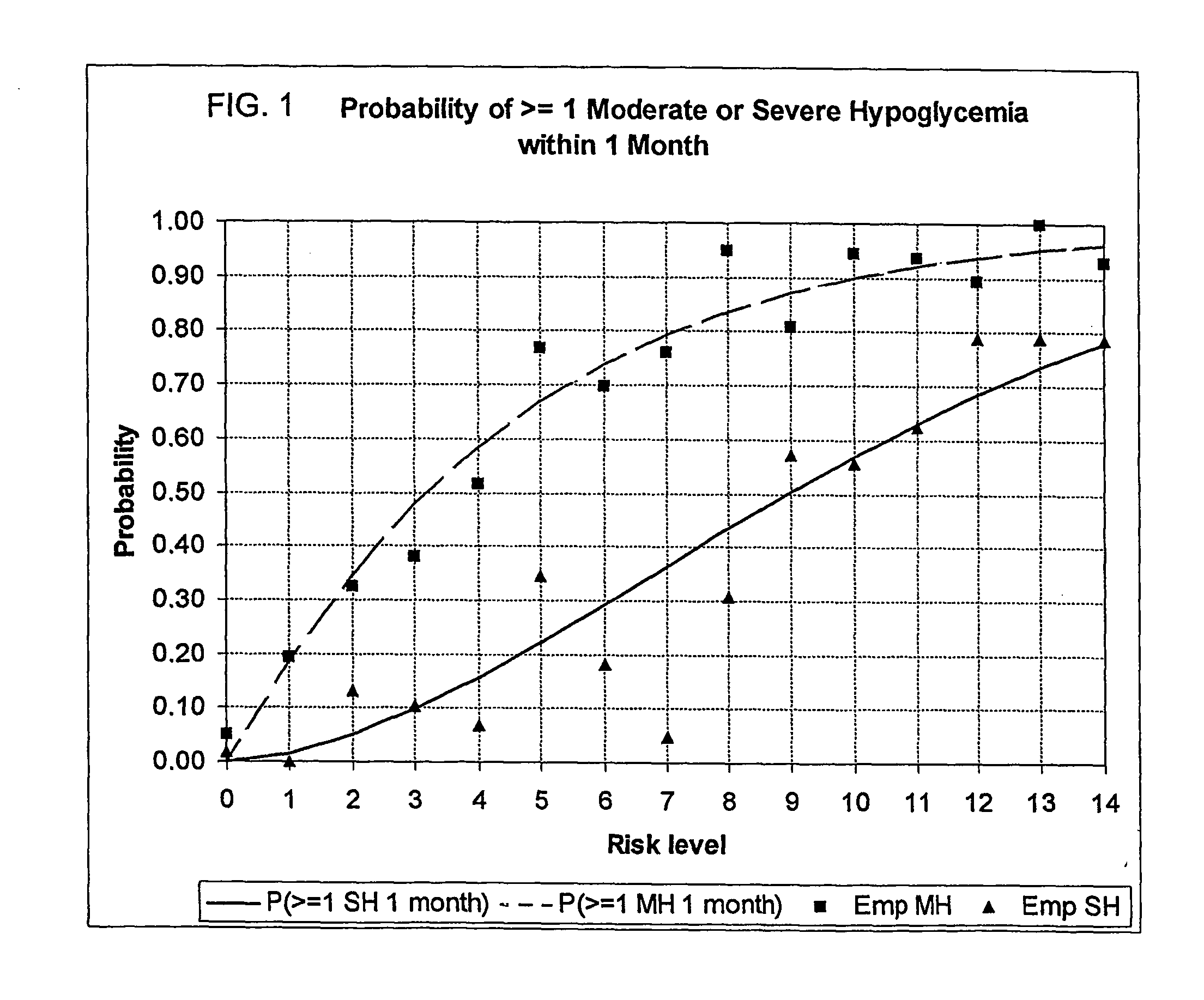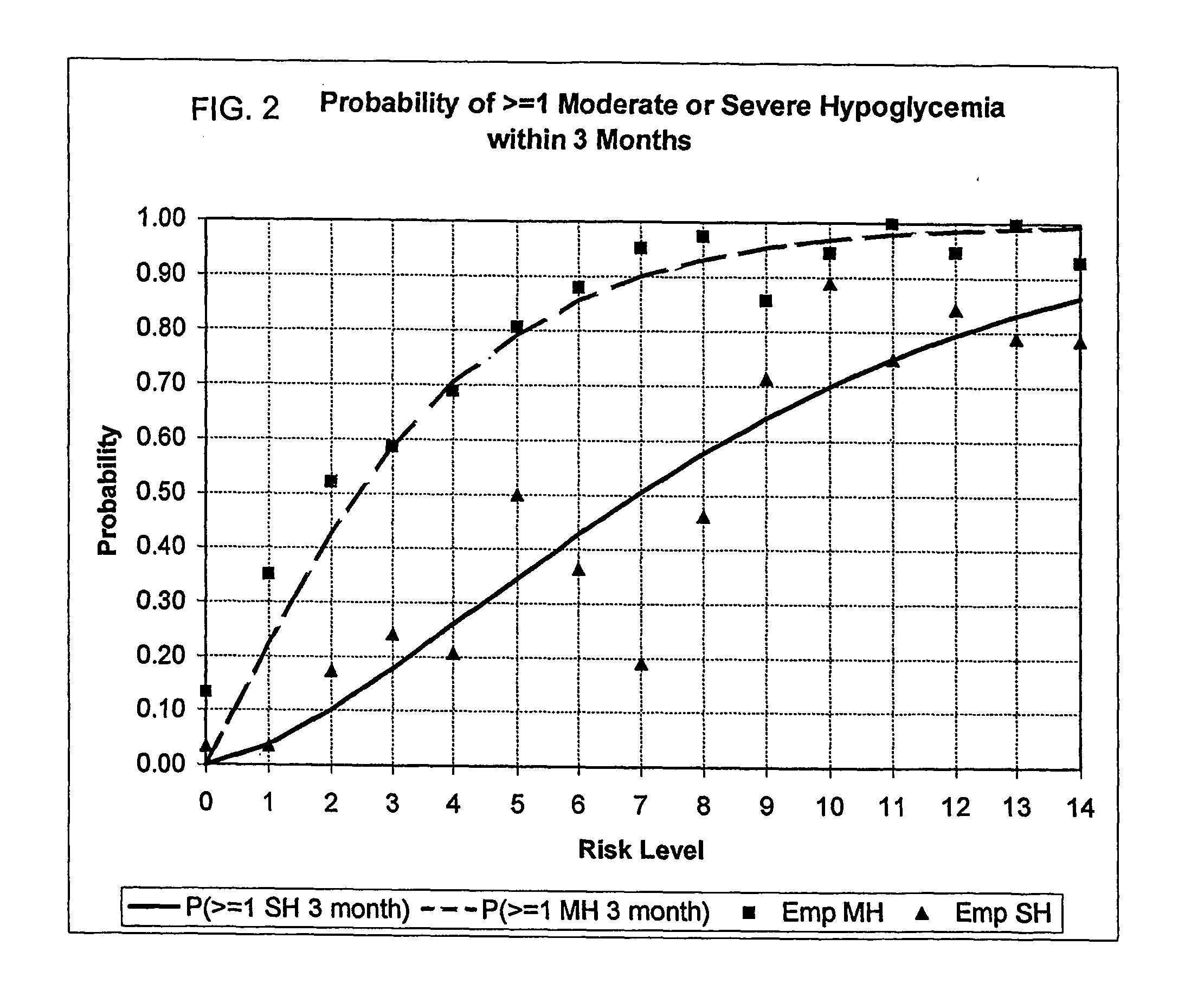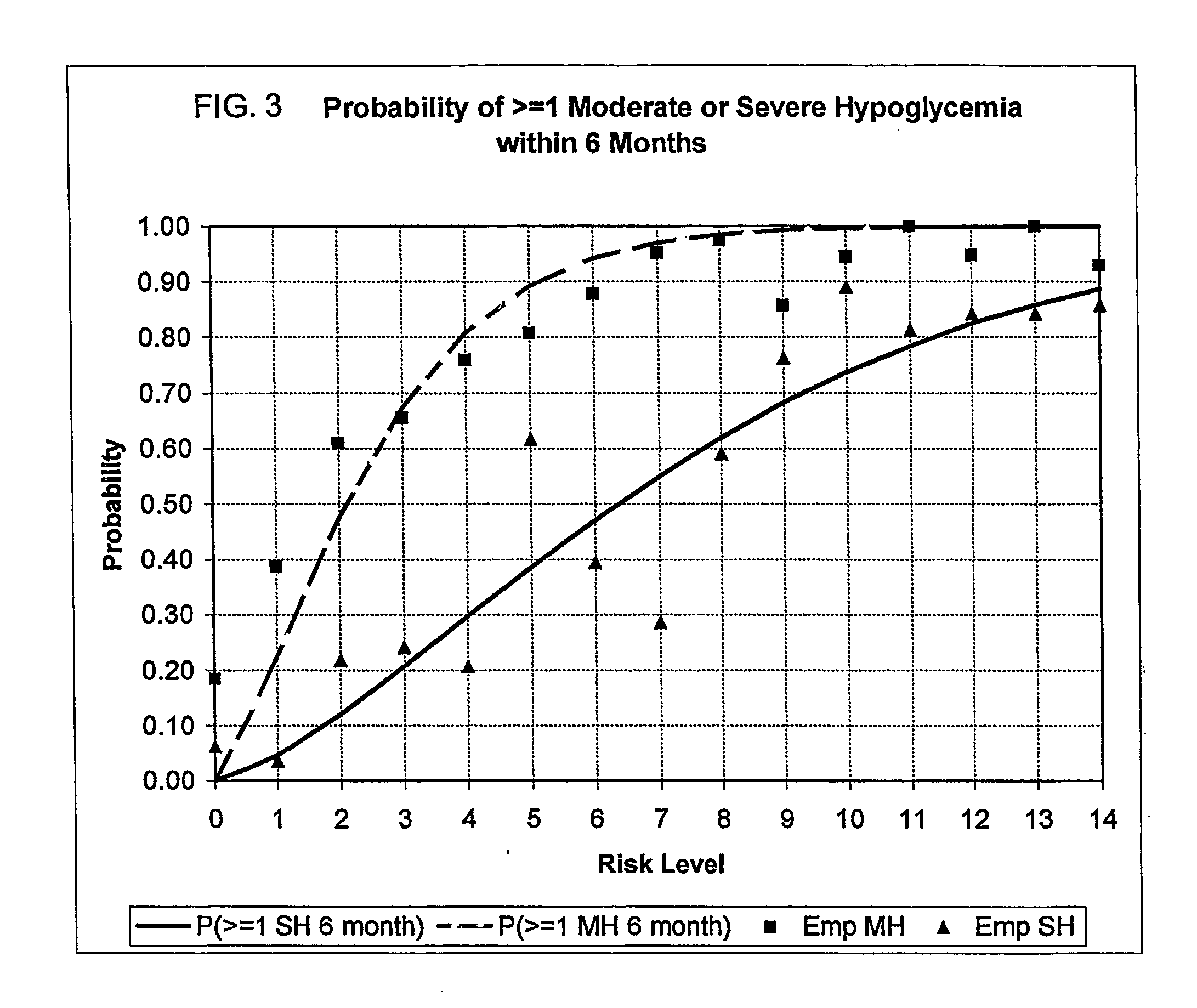Method, system, and computer program product for the processing of self-monitoring blood glucose(smbg)data to enhance diabetic self-management
a self-monitoring and diabetes technology, applied in the field of glycemic control of individuals with diabetes, can solve the problems of increasing the risk of frequent severe hypoglycemia (sh, patients and health care providers are discouraged from pursuing intensive therapy, patients with diabetes face a life-long optimization problem), and achieve the effect of improving the monitoring of the risk of hypoglycemia
- Summary
- Abstract
- Description
- Claims
- Application Information
AI Technical Summary
Benefits of technology
Problems solved by technology
Method used
Image
Examples
examples of invention
I. Example No. 1
[0122] This Example No. 1 consists of three algorithms for simultaneous evaluation, from routine SMBG data, of the two most important components of glycemic control in diabetes, HbA1c and risk for hypoglycemia. This method pertains directly to enhancement of existing home BG monitoring devices by introducing an intelligent data interpretation component capable of predicting both HbA1c and periods of increased risk for hypoglycemia. The data analysis method has three components (algorithms): [0123] Algorithm 1: Evaluation of HbA1c; [0124] Algorithm 2: Evaluation of long-term risk for severe hypoglycemia (SH), and [0125] Algorithm 3: Evaluation of short-term (within 24-48 hours) risk for hypoglycemia.
[0126] Algorithm 1 and 2 provide uninterrupted monitoring and information about the overall glycemic control of an individual with Type 1 or Type 2 diabetes mellitus (T1DM, T2DM), covering both the high and the low end of the BG scale. Algorithm 3 is supposed to be activ...
PUM
| Property | Measurement | Unit |
|---|---|---|
| time | aaaaa | aaaaa |
| time | aaaaa | aaaaa |
| time | aaaaa | aaaaa |
Abstract
Description
Claims
Application Information
 Login to View More
Login to View More - R&D
- Intellectual Property
- Life Sciences
- Materials
- Tech Scout
- Unparalleled Data Quality
- Higher Quality Content
- 60% Fewer Hallucinations
Browse by: Latest US Patents, China's latest patents, Technical Efficacy Thesaurus, Application Domain, Technology Topic, Popular Technical Reports.
© 2025 PatSnap. All rights reserved.Legal|Privacy policy|Modern Slavery Act Transparency Statement|Sitemap|About US| Contact US: help@patsnap.com



